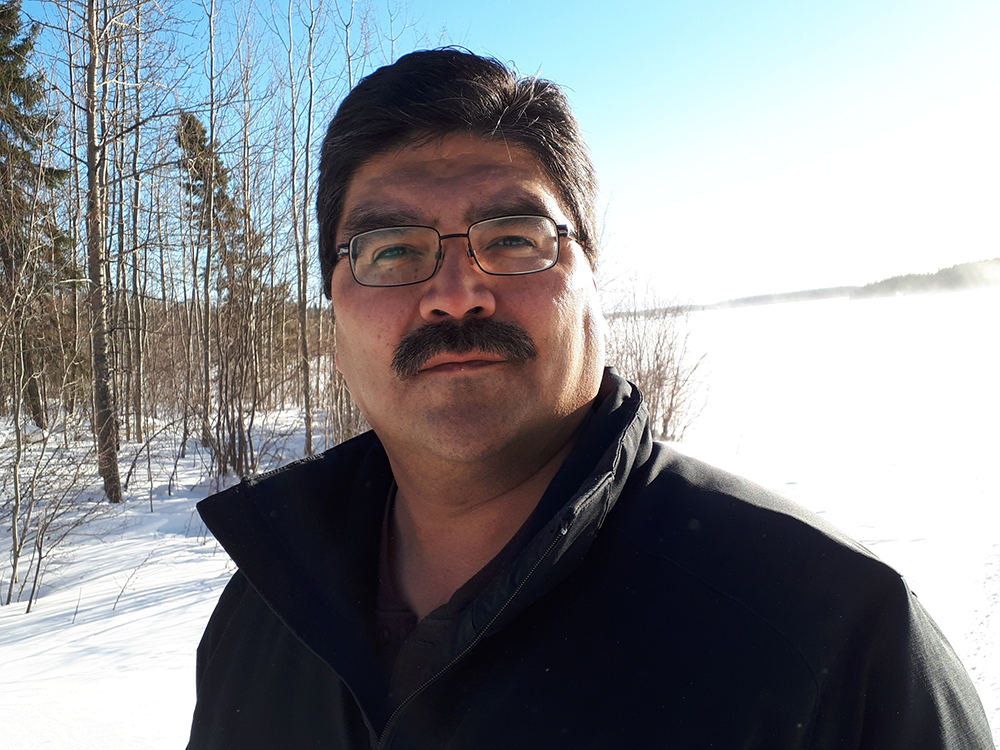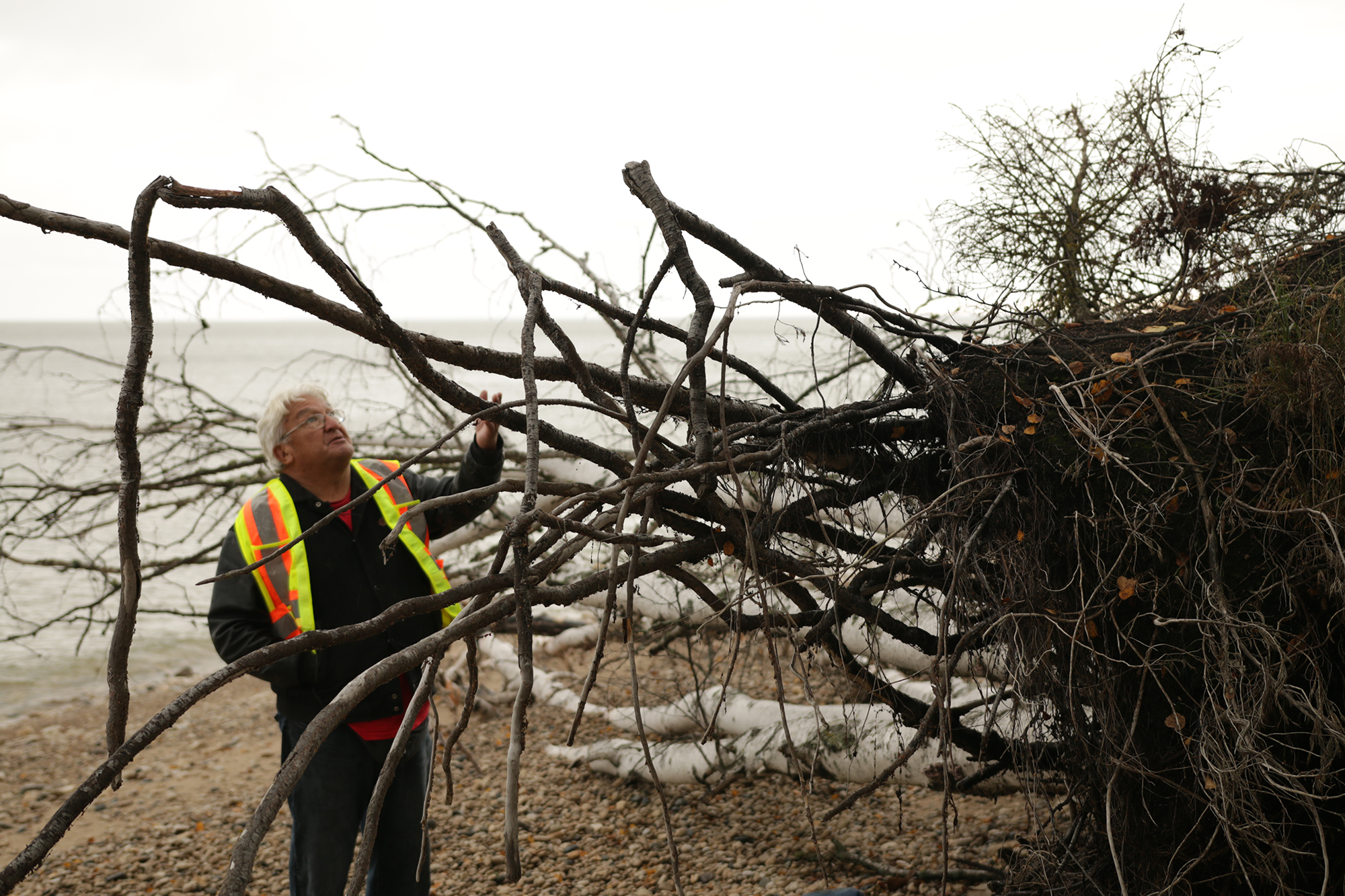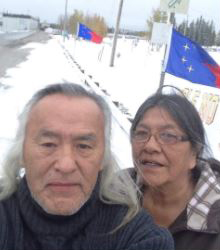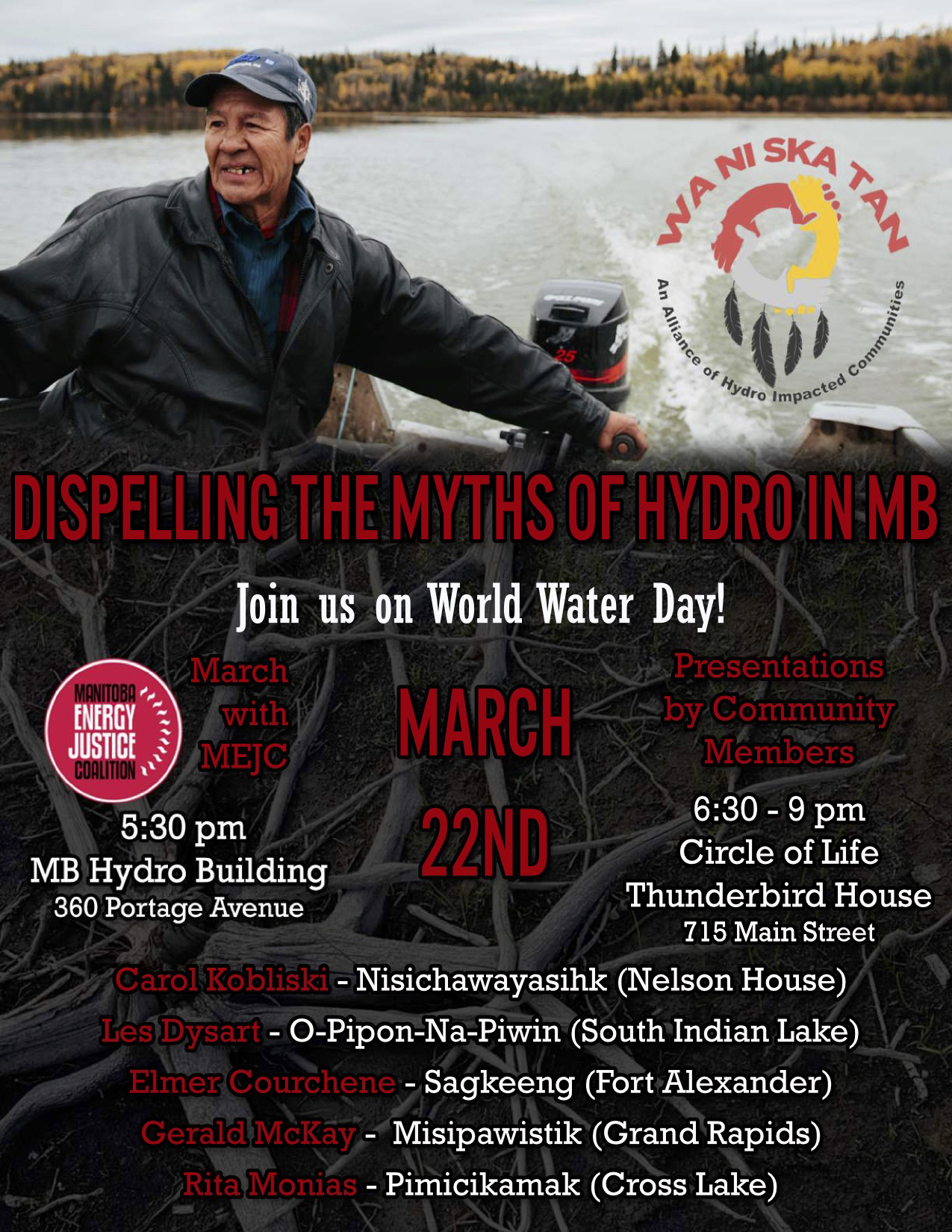A huge thank you to everyone who came out to attend our event, we couldn’t have done it without you and are so glad you wanted to learn more! We hope to host another event similar to this in the future and are grateful for all of the support and feedback we have received from March 22nd. In light of the event’s success , media was on scene to capture some of the evening! The event was a success, with faces of all ages attending! Some of the articles and stories from the event can be read below:
 Carol Kobliski has lived with her family in Nisichawayasihk (Nelson House) her whole life. Carol is a survivor of the Churchill River Diversion project which has heavily impacted her family. ” We lived on an island, like 5 other families……as a child, little did I know what happened growing but as I got older, I was once again impacted by Manitoba Hydro, as my community was settling with Manitoba Hydro with the Northern Flood Agreements and then being impacted again with the Wuskwatim dam, that my community became 33% partners with Manitoba Hydro. I remember a quote my grandfather said to some elders back in the days….he said to them don’t ever trust “Manitoba Hydro”, they are going to destroy our land and way of living…..I was only 12 when I heard that, not knowing what he meant….but now I’m seeing what he meant….”
Carol Kobliski has lived with her family in Nisichawayasihk (Nelson House) her whole life. Carol is a survivor of the Churchill River Diversion project which has heavily impacted her family. ” We lived on an island, like 5 other families……as a child, little did I know what happened growing but as I got older, I was once again impacted by Manitoba Hydro, as my community was settling with Manitoba Hydro with the Northern Flood Agreements and then being impacted again with the Wuskwatim dam, that my community became 33% partners with Manitoba Hydro. I remember a quote my grandfather said to some elders back in the days….he said to them don’t ever trust “Manitoba Hydro”, they are going to destroy our land and way of living…..I was only 12 when I heard that, not knowing what he meant….but now I’m seeing what he meant….”
 Les Dysart is a life long resident of South Indian Lake who grew up on the shores of the lake. He is a hunter, Commercial fisher and trapper. Les is also the CEO of the Community Association of SIL who signed a compensation agreement with MB Hydro and Manitoba in relation to the CRD. SIL was the third largest Lake Whitefish Fishery in North America and was once prosperous. He has witnessed first hand the devastation of Hydro development and a long time advocate for MB Hydro to operate responsibly to the people they impact.
Les Dysart is a life long resident of South Indian Lake who grew up on the shores of the lake. He is a hunter, Commercial fisher and trapper. Les is also the CEO of the Community Association of SIL who signed a compensation agreement with MB Hydro and Manitoba in relation to the CRD. SIL was the third largest Lake Whitefish Fishery in North America and was once prosperous. He has witnessed first hand the devastation of Hydro development and a long time advocate for MB Hydro to operate responsibly to the people they impact.
 Gerald McKay was born and raised in Grand Rapids during the construction of the dam/hydro-electrical generation station. He is a commercial fisherman on Lake Winnipeg and has fished for about thirty years. Gerald also graduated from Red River College in the Business Administration program, and is a certified Project Manager.
Gerald McKay was born and raised in Grand Rapids during the construction of the dam/hydro-electrical generation station. He is a commercial fisherman on Lake Winnipeg and has fished for about thirty years. Gerald also graduated from Red River College in the Business Administration program, and is a certified Project Manager.
 Rita Frances Monias is from Pimicikamak (Cross Lake), and has a Bachelor of Arts, Bachelor of General Studies, and a Counselling Certificate. Rooting back from 1993, Rita has been very passionate and dedicated towards environmental justice and human rights. Rita was inspired by her father, and her mother, who fully supported and encouraged her to pursue education and learn more about how the government and corporations were impacting the environment and the rights of her community.
Rita Frances Monias is from Pimicikamak (Cross Lake), and has a Bachelor of Arts, Bachelor of General Studies, and a Counselling Certificate. Rooting back from 1993, Rita has been very passionate and dedicated towards environmental justice and human rights. Rita was inspired by her father, and her mother, who fully supported and encouraged her to pursue education and learn more about how the government and corporations were impacting the environment and the rights of her community.
 Wa Ni Ska Tan: An Alliance of Hydro-Impacted Communities (Cree word for ‘Wake Up’ or ‘Rise Up’) works to explore both the positive and negative implications of hydropower for nearby environments and Indigenous communities in Manitoba and other affected regions across Canada. Through community based research projects, Wa Ni Ska Tan is working to further explore how and to what degree healing as well as meaningful and desirable social and environmental change can occur. The alliance is shaped by the priorities of hydro-impacted Indigenous communities. Principles underlying Wa Ni Ska Tan centre on transparency, accountability, cross-cultural sensitivity, mutual respect, and consensus in decision-making.
Wa Ni Ska Tan: An Alliance of Hydro-Impacted Communities (Cree word for ‘Wake Up’ or ‘Rise Up’) works to explore both the positive and negative implications of hydropower for nearby environments and Indigenous communities in Manitoba and other affected regions across Canada. Through community based research projects, Wa Ni Ska Tan is working to further explore how and to what degree healing as well as meaningful and desirable social and environmental change can occur. The alliance is shaped by the priorities of hydro-impacted Indigenous communities. Principles underlying Wa Ni Ska Tan centre on transparency, accountability, cross-cultural sensitivity, mutual respect, and consensus in decision-making.